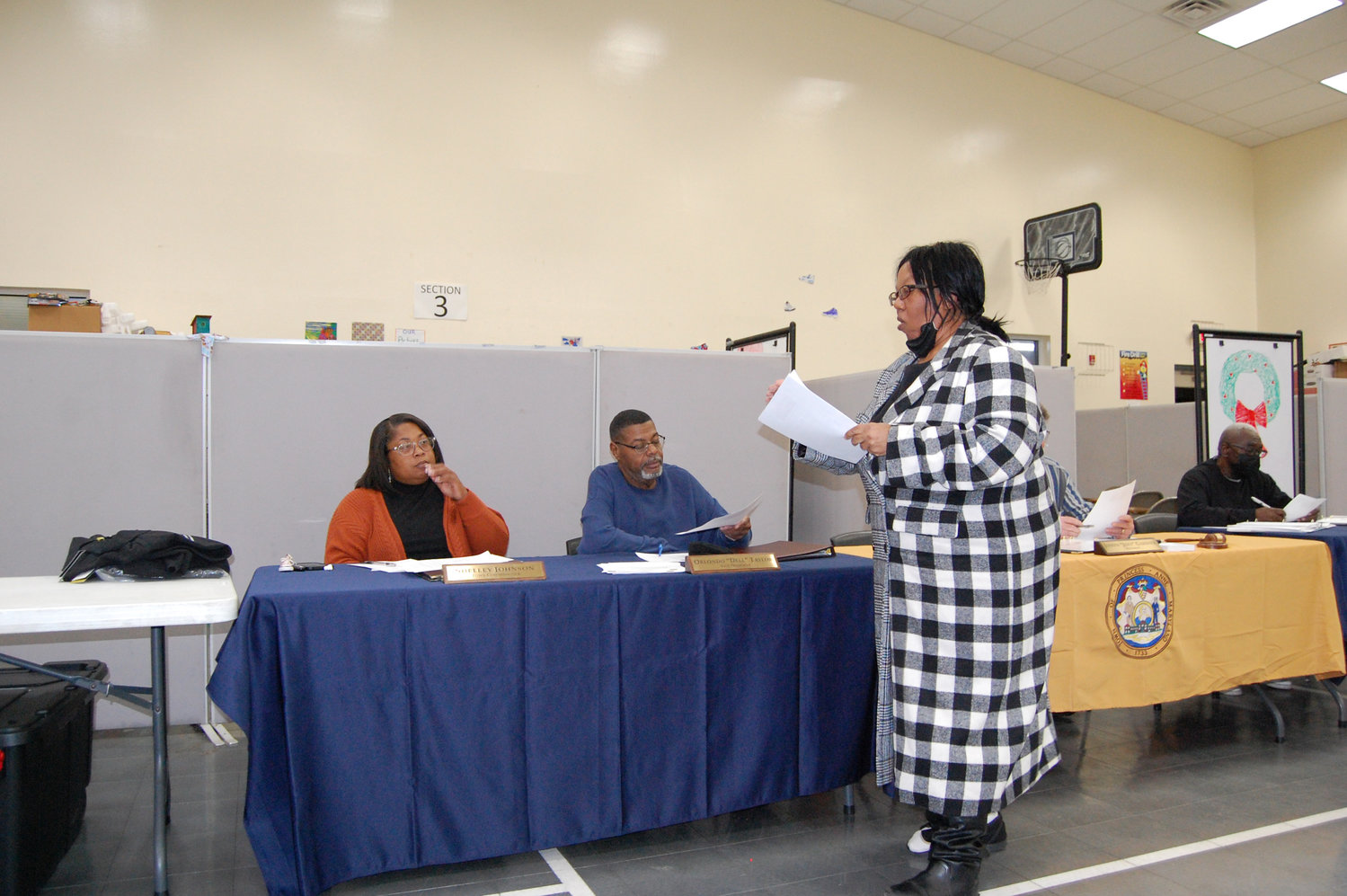Princess Anne's tap water under scrutiny for improvement
PRINCESS ANNE — When Donzella Johnson moved from Oriole to Princess Anne she never thought she wouldn’t be able to drink the water.
The Beechwood Street resident says she won’t …

You must be a member to read this story.
Join our family of readers for as little as $5 per month and support local, unbiased journalism.
Already a member? Log in to continue. Otherwise, follow the link below to join.
Please log in to continue |
Princess Anne's tap water under scrutiny for improvement
PRINCESS ANNE — When Donzella Johnson moved from Oriole to Princess Anne she never thought she wouldn’t be able to drink the water.
The Beechwood Street resident says she won’t use it for drinking, cooking or bathing plus washes her clothes at a laundromat, buying at her own expense gallons and gallons of water for what she needs at home.
Ms. Johnson figured using so little water would be reflected in her bill from the Somerset County Sanitary District but it was never less despite her low consumption because she was always paying the minimum charge.
“I’m a good citizen, I’m going to pay that bill,” she said, but “it smells like rotten eggs as soon as you turn the faucet on,” and stains her toilet.
When speaking to others about it, this 30-year military disabled veteran found she was not alone. But unlike her, they were defeated and tired of complaining because that’s the way it’s always been.
Alarmed that the water may be harmful in the long term, Ms. Johnson brought her concerns to the Sanitary Commission. “It’s not just for me, but everybody else…too nervous to speak up,” she said, not wanting to find out “10 years from now there was something in the water that caused people to get sick.”
Princess Anne’s tap water can appear unappealing or even unsafe to drink because of discoloration from tannins and iron. This “cosmetic defect” is one the Sanitary District is trying to eliminate at the lowest possible cost to its customers.
With eight wells in play, however, Superintendent Earl Ludy said no comprehensive fix is possible so vendors who deal with home and smaller industrial water systems are being consulted on the best way to clear up the water.
“Vendors that service the large treatment plants don’t have the equipment that will work with us because our wells inject directly into the system, so we have to treat it at each well,” he said.
Mr. Ludy expects information back by mid-January and from there engineers can start on design and cost estimates while they also look into financing options.
One of the issues will be, can a relatively inexpensive method such as salt or activated carbon filters be utilized — and then what to do with the reject water. Some wells, because of their location, have no proximity to a sewer or the site they occupy is limited in size where a septic system would be impossible to install.
One alternative might be a holding tank that would need regular draining or exchanged with an empty tank for disposal of reject water at the wastewater treatment plant, said Sanitary District General Manager Tony Stockus.
There is another solution, however, but the Maryland Department of the Environment will not permit it. That is blending the water with water from its two Patapsco aquifer wells on Revell’s Neck Road. The fluoride level in those wells delivering crystal clear water is permissible by EPA standards but over the state’s maximum containment level — despite it being the same water consumed by Crisfield and Fairmount customers.
MDE will allow this water to be used if run through a reverse osmosis (RO) system but that would double the cost of water and raise water rates accordingly.
Then there is the more than 20% of reject water to be treated, and RO water is more corrosive pipes.
The Princess Anne Subdistrict Expansion (PASE) project was completed in 2014 at a cost of $12 million. Efforts politically to break through and open the tap even for a blending plan have been shot down, but with a change in administration in Annapolis the Sanitary Commission will likely try again next year.
In the meantime it will investigate filtering the water from the Manokin aquifer wells. The next Sanitary Commission meeting is 1 p.m. Feb. 9 in the County Office Complex meeting room as the January meeting has been canceled.






